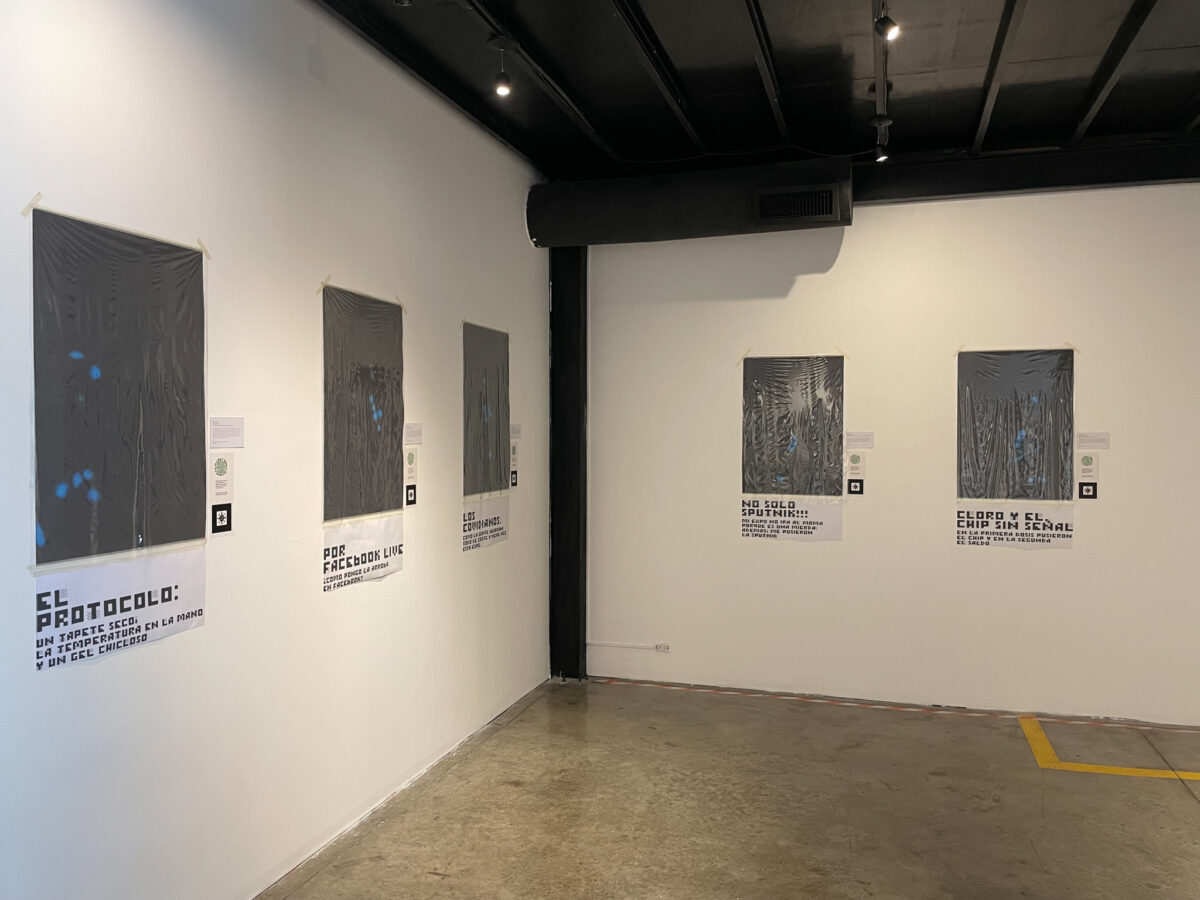EXHIBITION
ÍNTIMO - PROJECT SPACE
UNCATEGORIZED

HUMOR AND RESILIENCE
Curated by Isabela Mendoza Lamuño. Artist: Maria Fernanda Carlos, Bryan Castro y Nora Perez.
21 APR - 30 MAY, 2022
The sense of humor is not superficial or a luxury; on the contrary, it is fundamental for our survival. The curatorial proposal asserts that a sense of humor is necessary in times of crisis, such as the current pandemic. Humor develops as a perspective that allows us to face obstacles, challenges, or situations, and to react to the pain and suffering we experience. In this way, a sense of humor becomes a form of resilience where we find meaning in our own lives.
The curatorial proposal is based on experiential research that focuses on three selected artists who will present their projects in the following order: Bryan Castro, Nora Pérez, and María Fernanda Carlos. Humor is cultivated intimately and creates alliances between communities, with the ÍNTIMO gallery serving as the link between these artistic communities.
Bryan Castro
“ViRal” is a satire and critique of the conditions under which Guatemalan artists resist and produce their work. Bryan wants to deliberately contract Covid to investigate how work is done under these circumstances. The artist addresses topics such as politics, exclusion, stigma, morbidity, technophobia, precarity, and misinformation. Using a metaverse created through viral memes from the pandemic, retrieved from Facebook and displayed on posters, the artist explores the idea of “laughter that ends in tears” to reflect on the deeper meaning of humor.
Nora Pérez
Exercising power always goes hand in hand with what Pérez refers to as “discursive illusions,” in which they analyze the political and social landscape of the pandemic. Their proposal arises from a compilation of political speeches made during the pandemic and an analysis of their performativity, symbolic content, and propagandistic gestures. The project explores the cracks of the “absurd” and the “ridiculous,” as well as the staging, that is, the “discursive illusions” created in the exercise of power.
María Fernanda Carlos
All the emotional conflict that we don’t work through accompanies us, everything we don’t speak or externalize gains strength, and all the unresolved issues from the past imprison us. As human beings, we are designed to deal with stress, to categorize it, work through it, or ignore it. But what happens when one or two traumatic events in our lives are too much? What happens when the body can no longer process it? In this case, the result is PTSD (Post-Traumatic Stress Disorder); during the pandemic, it emerged in an elevated manner due to sudden losses in families, homeschooling, domestic violence, lack of income and job scarcity, mandatory confinement, depression, etc. This proposal is an opening to the artist’s intimate reality, which she experienced through grief, motherhood, and the domestic sphere. She is interested in revisiting chaos through play, through the absurd, laughing at herself and the household disorder, in order to use tools of laughter therapy to heal and liberate herself.
Isabela Mendoza Lamuño